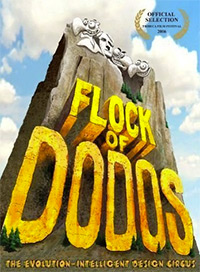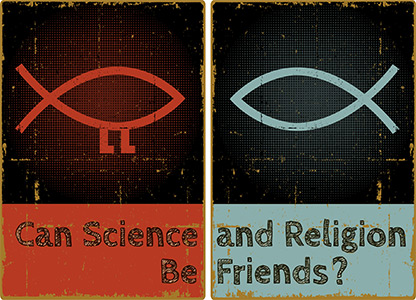2013
Event Venues
The School of Science and Math Auditorium,
College of Charleston
Located at the intersection of Coming and Calhoun Streets, across from
the College Library. The NSCB (New Science Center Building) Auditorium
is Room 129.
Grimsley Hall, The Citadel
The Citadel’s Grimsley Hall is located at the north end of
Summerall Field, on Jenkins Avenue.
Hawkins Living Learning Center is
in Rivers Residence Hall, on College Promenade between the Sottile
House and Student Health Services.
Maps of the CofC
Campus, and The Citadel are available online.
Circular
Congregational Church
Circular
Congregational Church is located at 150 Meeting Street.
PAST YEARS'
Darwin Week In Charleston, Since 2001
2001
Darwin Week
2002 Darwin Week
2003 Darwin Week
2004 Darwin Week
2005 Darwin Week
2006 Darwin Week
2007 Darwin Week
2008 Darwin Week
2009 Darwin Week
2010 Darwin Week
2011 Darwin Week
2012 Darwin Week
Why Evolution Is True
Thursday, February 7 at 4:00 p.m.
CofC School of Sciences and Math Auditorium
Dr. Jerry Coyne
Amid the ongoing debate about creationism and intelligent design, the
empirical evidence of evolution by natural selection has often been
overlooked. That evidence is vast, varied, and magnificent, drawn from
a broad spectrum of scientific inquiry ranging from genetics, anatomy,
and molecular biology to paleontology and geology. Scientists today are
finding species splitting in two, watching natural selection changing
animals and plants before our eyes, and discovering fossil evidence
that dinosaurs have sprouted feathers and fish have grown limbs. Join
Dr. Coyne for a succinct and accessible summary of the facts supporting
Darwinian evolution.
Refreshments to follow.
››
Sponsored by a Howard Hughes Medical Institute grant for science
education.
Dr.
Jerry A. Coyne
is a Professor in the Department of Ecology and Evolution at the
University of Chicago. He received his BS from William & Mary
and
his Ph.D. from Harvard. He has authored over 110 scientific papers and
80 other articles, reviews, and columns on population genetics and
evolution, as well the scholarly book Speciation
(Sinaur, with H. A. Orr). In 2009 he published the popular Why
Evolution is True (Viking) and launched a blog
of the same name.
2013
Darwin Week “Talks on Tap” —
Are Science and Faith Incompatible?
Thursday, February 7 at 7:30 p.m.
Circular Congregational Church
Dr. Jerry Coyne and Dr. Lea Schweitz
Can Science and Religious Faith be friends? Or are they fundamentally
incompatible, for precisely the same reason that irrationality and
rationality are incompatible? Is a constructive dialogue even possible
between scientists and theologians? Or is monologue needed, where
religion remains silent and science tells it that there is no evidence
for its claims? Join Dr. Coyne and Dr. Schweitz for strikingly
different perspectives on these thorny questions, moderated by Colin
Kerr of The Journey (Presbyterian Student Association).
Dr. Lea F. Schweitz
is Assistant Professor of Systematic Theology at the Lutheran School of
Theology at Chicago, and Director of The Zygon Center for Religion and
Science. She received her BA from Luther College and her MA and Ph.D.
from the University of Chicago Divinity School. She is the author of
over 40 papers and presentations on the relationship between science
and Christianity.
Dr. Jerry A. Coyne is a professor the University of Chicago and author
of the (2009) book, Why Evolution is True (more above).
Courting God:
Evolution and Creation in American Public Schools
Friday, February 8 at 3:00 p.m.
Hawkins Living Learning Center
Dr. John Y. Jones
For the past 90 years, laws regarding the teaching of evolution in
public schools have themselves evolved a great deal. This talk will
discuss some of those laws, the ways in which those laws have changed,
and what the changes mean for today’s public school teachers.
››
Sponsored by the Honors College Faculty Lecture Series
Dr. John Y. Jones has an adjunct
appointment in the
College of Charleston Department of Teacher Education. His Ph.D.
research at Penn State dealt with the (2005) intelligent design
controversy in Kansas, and he has significant expertise with the
landmark Kitzmiller vs. Dover trial as well.
MOVIE
NIGHT 
Flock of Dodos: the evolution-intelligent design circus
Friday, February 8 at 6 p.m.
School of Science and Math Auditorium
A comic and controversial 2006 feature documentary, "Flock
of Dodos: the evolution-intelligent design circus,"
is the first feature film to take an even-handed look at the
intelligent design vs. evolution clash that appeared on the covers of
Time and Newsweek in 2005. Filmmaker, scientist, surfer and
evolutionary biologist Dr. Randy Olson explores the controversy over
the teaching of evolution and the recently developed alternative,
intelligent design. Olson, a native of Kansas, visits his home state
and the community of Dover, Pennsylvania, which attempted to introduce
intelligent design in science classes. Olson draws on basic aspects of
evolution as metaphors, including the extinct dodo, which he suggests
symbolizes what happens to those unable to change with their
environment. Featured are seven top advocates for intelligent design.
››
Sponsored by the CofC
Biology Club.
EVOLUTION WEEKEND:
CIRCULAR CONGREGATIONAL CHURCH
Corresponding with Darwin
Sunday, February 10 at 11:00 a.m.
Dr. Jeremy Rutledge
More and more religious people root themselves in a scientific
understanding of the natural world. The Sunday morning teaching at
Circular Church will consider Darwin’s story and our own as
we
affirm science and religion as partners in the existential search for
truth and meaning.
The Rev. Dr. Jeremy Rutledge received his
B.A. from
Baylor University, his M.Div. from Baptist Theological Seminary at
Richmond, and his D. Min. from Meadville Lombard Theological School,
Chicago. He was for ten years the senior pastor of Covenant Church in
Houston, Texas, before accepting the call to Circular Church in early
2012.
Zombie Ants and Disgusted Humans:
Behavior in a World of Parasites
Monday, February 11 at 4:00 p.m.
CofC School of Sciences and Math Auditorium
Dr. David Hughes
We, along with all animals, have evolved in a world thick with
parasites. And the behaviors that have evolved as a consequence are
strange indeed! “Zombie Biology” is a recently
developing
branch of behavioral ecology that examines how and why parasites
precisely control the behavior of the hosts they infect. The study of
“Disgust Biology,” behaviors on the part of a
potential
host to avoid becoming sick, is as old as Darwin himself. Dr. Hughes
will examine some of the most complex results of natural selection,
touching on the tenuous concept of free will in the parasitized brain.
Refreshments to follow.
››
Sponsored by the CofC
Biology Department.
Dr.
David P. Hughes
is assistant professor of entomology and biology at Penn State
University. He received his BSc (Hons) from the University of Glasgow
and his DPhil from the University of Oxford. He has authored 40
scientific papers and edited books on the sociobiology of communication
and host manipulation of parasites. His work on "zombie ants" has been
featured in such popular outlets as the New York Times, MSNBC, Fox
News, and Scientific American.
2/12/2013: Note that Dr. Shea was unable to travel due to bad
weather and Dr. Dana Cope presented at 4 p.m. (the 6:30 p.m.Citadel
event was cancelled).
The origin of bipedalism in the Hominidae,
and Australopithicus afarensis as a transitional
form
Tuesday, February 12 at 4:00 p.m.
CofC School of Sciences and Math Auditorium
Dr. Dana Cope, Department of Sociology and Anthropology, College of
Charleston
Dr. Dana Cope did his undergraduate work at
the
University of Kansas, and his Ph.D. at the University of Texas, Austin.
His research primarily focuses on the early Eocene evolution of the
primates.
Myths of “Modern” Human Origins
Tuesday, February 12 at 4:00 p.m.
CofC School of Sciences and Math Auditorium
Dr. John Shea
For decades paleoanthropologists have distinguished recent
"behaviorally-modern" humans from the earliest member of our species,
Homo sapiens. This distinction reflects two longstanding myths in human
origins research. The first myth is that the European Upper Paleolithic
"revolution" 40,000 years ago marks a crucial turning point in
prehistory. The second is there is a unifying trend to human evolution.
Dr. Shea will challenge both of these myths.
Darwin's Birthday Celebration to follow!
››
Sponsored by Sigma Xi, the Scientific Research Society.
The Handaxe's Tale:
Stone Tools and Human Evolution
Tuesday, February 12 at 6:30 p.m.
117 Grimsley Hall, The Citadel
Dr. John Shea
Stone tools are the most durable record of human evolution,
outnumbering human fossils from the last 2.5 million years by several
orders of magnitude. But what do we know about them and how do we know
it? This lecture introduces the basics of stone tool technology,
surveying what archaeologists know from mechanics, from experiments,
and studies of recent stone-tool-using people around the world.
Sponsored by Sigma Xi, the Scientific Research Society.
Refreshments preceding in Room 204.
Dr. John J. Shea
is a Professor of Anthropology at Stony Brook University, NY, and
Research Associate of the Turkana Basin Institute in Kenya. He received
his BA from Boston University and his Ph.D. from Harvard. His work on
stone tools has been featured in more than a dozen television
documentaries and in exhibits in the American Museum of Natural History
and the Smithsonian.
Climate Change and Human Origins:
New Discoveries through
Scientific Drilling in East Africa’s Great Rift Valley
Wednesday, February 13 at 4:00 p.m.
CofC School of Sciences and Math Auditorium
Dr. Chris Scholz
Refreshments to follow.
››
Sponsored by the CofC Geology Department.
Dr. Christopher A. Scholz is Professor of
Earth Sciences
at Syracuse University. His BA is from the University of Vermont, and
his Ph.D. is from Duke. He is the author of over 50 scientific papers
on tectonics and seismology. Since 2002 he has been the lead
investigator on the Lake Malawi Scientific Drilling Project.

